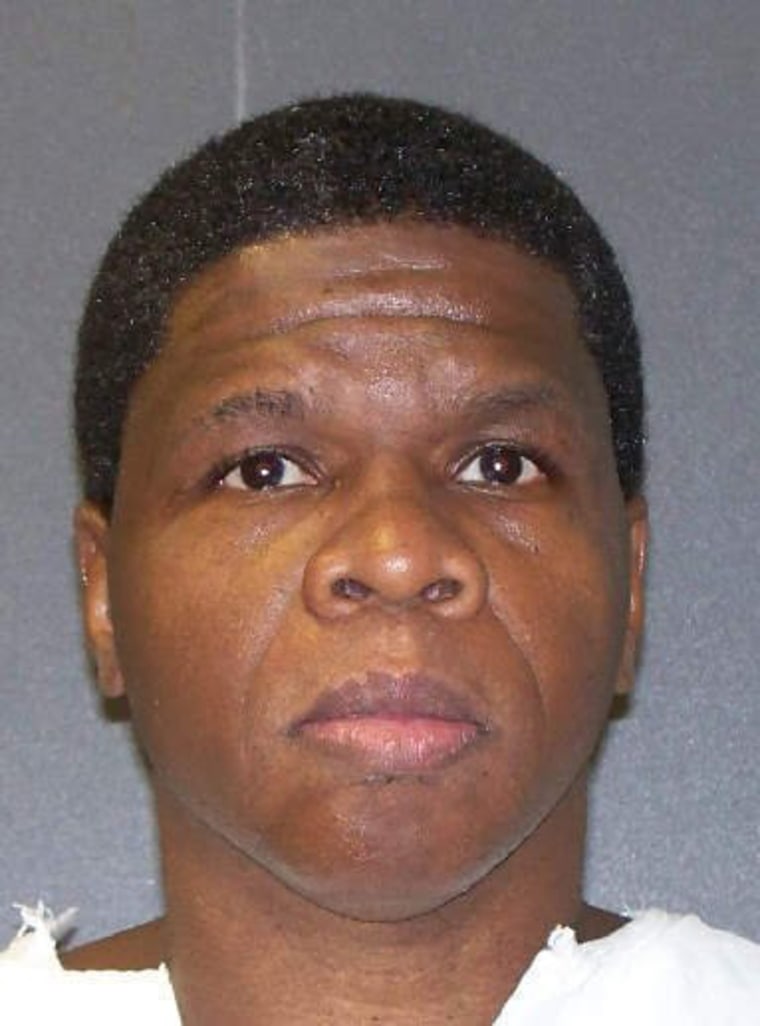For nearly 14 years, Duane Buck has been challenging his death sentence as based in part on racial prejudice, because of a psychologist's testimony that he was more likely to be a future danger because he is black.
On Wednesday, the U.S. Supreme Court appeared willing to give him another try.

A majority of the justices expressed concern that Buck's own defense lawyer, not the prosecutors, introduced the racially charged testimony during his trial.
"It would seem more prejudicial when the defendant's own lawyer brings it up. The jury would probably think, then it must be true," said Justice Elena Kagan.
"Doesn't it show how abysmal his counsel was?" asked Justice Ruth Bader Ginsburg.
Buck's lawyers are not challenging his conviction, but they are seeking another chance to argue that he should not get the death penalty.
A few weeks after breaking up with his girlfriend in 1995, Buck barged into her Texas home with a shotgun and a rifle. He wounded his step sister, killed another man who was in the house, then followed his former girlfriend outside and killed her in front of her children.
At the sentencing hearing, Buck's own lawyers called a former prison psychiatrist, Walter Quijano, to assess his future dangerousness. He would be unlikely to be violent in the future, Quijano said, but Buck's race "increased the probability" of future violence.
"It's a sad commentary that minorities — Hispanics and black people — are over-represented in the criminal justice system," he said.
Future dangerousness is one of the factors a Texas jury must unanimously find before a defendant can be sentenced to death.
Related: Supreme Court Strikes Down Florida Death Penalty Law
In the first of what would become several unsuccessful appeals, newly appointed counsel failed to challenge the decision by Buck's own trial lawyers to introduce the psychiatrist's testimony.
But in 2000, the Texas attorney general said a defendant's race should never be an issue at sentencing and identified Buck's case as one in which the state would not oppose an appeal for a new sentencing hearing. The state later reversed course, explaining that because it was Buck's own lawyers who raised the issue, the state had not made an error that needed to be remedied.
Last August, a federal appeals court declined to give Buck permission to pursue his appeals.
"As a result, a death sentence tainted by egregious racial bias remains intact, and the legitimacy of our criminal justice system has been seriously undermined," said Sherrilyn Ifill of the NAACP legal defense fund, which is representing Buck before the Supreme Court.
During Wednesday's Supreme Court argument, lawyers for the state downplayed the significance of the psychiatrist's testimony, which said Buck presented a low likelihood of future dangerousness.
They also argued that Buck cannot show a "substantial likelihood" that a jury would have reached a different conclusion without the discredited testimony about race, which the state said was a precondition for a new round of appeals. Evidence of his future dangerousness, including "the horrific facts of the offense" and Buck's lack of remorse, was overwhelming, said Scott Keller of the Texas attorney general's office.
"This stereotype, that black men are more dangerous, is animating our entire public discussion these days. It's now up to this court to say, that's enough," said Kathryn Kase of the Texas Defender Service.
She said the Supreme Court should send a clear message that appeals to racial prejudice have no place in the criminal justice system.
A decision is expected sometime before late June.
